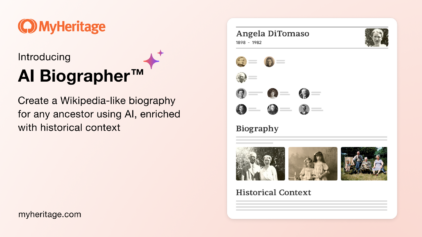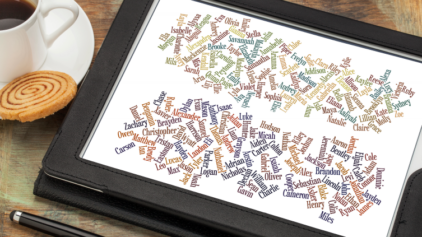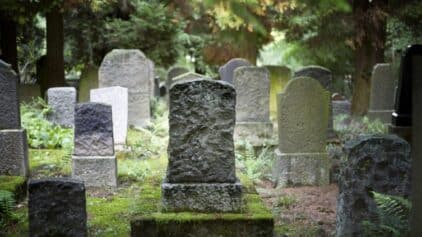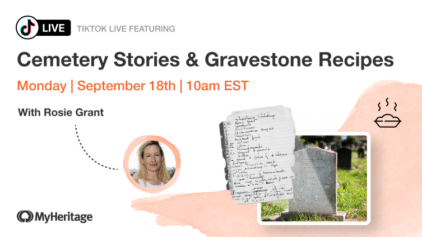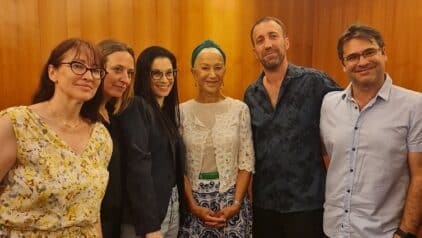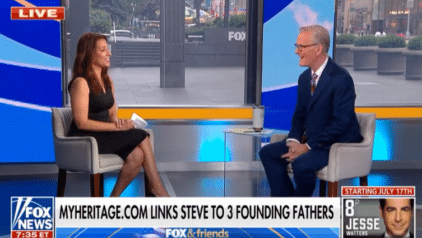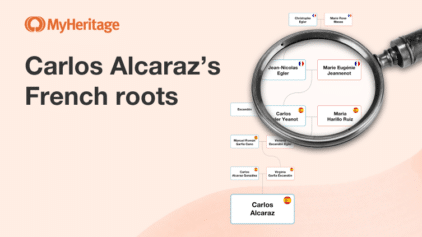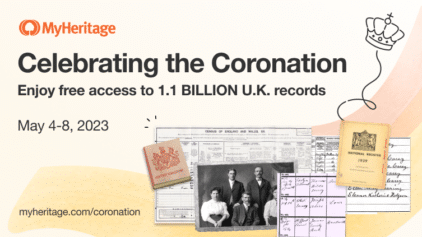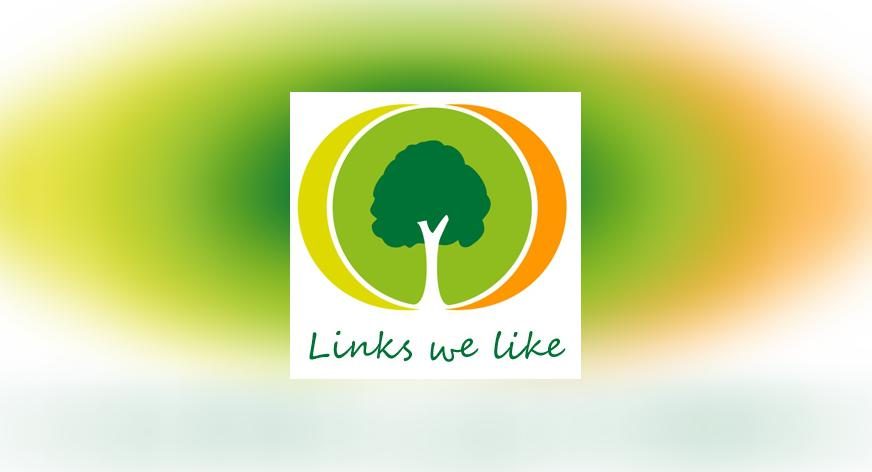

 Here’s another edition of Links We Like, providing information on topics that our readers may find both interesting and useful.
Here’s another edition of Links We Like, providing information on topics that our readers may find both interesting and useful.
Today we write about Research Buzz, Canada Archives, a cemetery-recorder catalyst, preserving an archive, events in Boston and Atlanta, and food heritage.
RESEARCH BUZZ
One of my favorite resource providers is Research Buzz. Every day, I get a neat email listing a handful of new resources.
Are you a museum crawler? You can now find your way around 22 US museums with Google Maps for Android. Looking for a specific exhibit or display? Plan your route from entrance to your target, see it on your phone or tablet. Since November 2011, the map collection had some 10,000 indoor maps, and they just added the additional 22 locations.
Some of the most famous: American Museum of Natural History, Arthur M. Sackler Gallery, Cincinnati Museum Center, Freer Gallery of Art, Hirshhorn Museum and Sculpture Garden, nine National Museums (Air and Space, African art, American history, American Indian, Natural History, Portrait Gallery, Zoological Park), The Smithsonian and more.
Expect more coming soon! Are you connected with a museum? Learn how you can have your museum’s floor plan included with the Google Maps Floor Plans tool. See the list of indoor maps here. Click here for Google Indoor Maps availability.
Another recent language translation article may prove helpful with its lineup of online translation tools.
Research Buzz is where you can find information on genealogy, such as genealogy, language translation, movies, and much more. Go to Researchbuzz.me and subscribe.
CANADA ARCHIVES
For those researching Canadian heritage, the Library and Archive Canada (LAC) is launching a modernized website to make easy to access its holdings. Features include drop-down menus, intro and educational videos, a blog pilot project as well as quick links to the LAC’s social media platforms.
Navigational aids allow visitors to browse the site and complete online tasks. According to the LAC announcement, visitors will find it easier to see what’s in the collection, perform online research, obtain copies of materials or even plan a real-time visit. There are also services for publishers, librarians and archivists.
Information is being migrated from the existing site to the new one, so both will remain online. The transfer is expected to be complete in summer 2013.
Visit the new LAC site and see how these resources may prove useful to your own research.
ONE PERSON’S INSPIRATION
We know that only one person is necessary to be the catalyst for a project that may well have wide-ranging impact. Such a person is Glenn Wallace of Montgomery Village, Maryland (US), who has single-handedly spent six to eight hours each day archiving some 5,500 burials in nearby Beallsville’s Monocacy Cemetery. Read his story here.
Wallace, 48, is a graphic illustrator, and an amateur genealogist.
Through his research, Wallace has compiled a sort of history of Poolesville, he said. He’s learned the stories of some of the town’s founding families, including the Darbys, Joneses, Williamses, Griffiths, Pooles and Bealls. In the process of contacting family members of the buried to get more information about their ancestors, he’s introduced second and third cousins.
He sees his project as creating a resource for those hoping to learn about their ancestors.
“Someday, someone might consider finding their relatives’ history,” Wallace said. “To them I say, ‘You’re welcome.’”
Many Confederate soldiers are buried there, with graves marked by iron crosses.
Cemeteries are one of Wallace’s fascinations, and he completed an architectural thesis in cemetery design at Catholic University in 1987, and he’s been fascinated by gardening and landscaping of cemeteries since he studied in Europe.
This project was begun six years, when he volunteered offered to take a photo of a gravestone in the cemetery. Is your family connected to Monocacy Cemetery? Are your surnames among those detailed above. If you’d like to contribute stories or family portraits to his project, email him at monocacycemetery@gmail.com.
PRESERVING AN ARCHIVE
India paid US$1 million to purchase a collection of letters, papers and photos relating to Mahatma Gandhi, and preventing their auction in London. The archive will now be brought to India and housed in the National Archive.
The collection belonged to Gandhi’s close friend Hermann Kallenbach, a German Jewish bodybuilder and architect.
Ellis Island exhibit in Atlanta
If you live down south and can’t visit New York’s Ellis Island, the National Archives in Atlanta is opening a new exhibit on July 21. The exhibit is “Ellis Island: The Lost Mural,” featuring a replica of a 1938 WPA mural from the dining hall at Ellis Island.
The exhibit also features portraits of famous immigrants and documents. Included among the famous are Alfred Hitchcock, Greta Garbo, Frank Capra, Erroll Flynn, Albert Einstein, Bob Hope, Stan Laurel, Greta Garbo, Werner Von Braun, Harry Houdini, Enrico Fermi, Desi Arnaz, Elizabeth Taylor, Irving Berlin, Charlie Chaplin, Ceila Cruz, Alexander Graham Bell and Rudolph Valentino.
A related program on August 25, features well-known genealogist and lecturer John Philip Colletta leading an all-day workshop on Federal records – such as passenger arrival manifests and naturalization records.
For more information, visit the Atlanta National Archives.
BOSTON PROGRAMS
The New England Historical and Genealogical Society (NEHGS) offers many programs at its headquarters in Boston and publishes a great newsletter. They have planned three onsite programs at their headquarters for July, August and September.
July 18: Learn all about the NEHGS website, AmericanAncestors.org, with its great features, tools, resources and content. It now has a database of more than 200 million searchable names for New England, New York and beyond. Using AmericanAncestors.org is free.
From August 6-11, NEHGS offers one of its most popular programs – Come Home to New England -an intensive week of family history discovery and education. Included are expert individual consultation and lectures to help researchers of all levels. Group meals and social events round out the week. Fee.
On September 15, join the NEHGS experts if you are ready to turn your family history into a publication. Writing and Publishing Seminar, Part I offers guidance on writing and publishing your family history project in this two-part seminar.
Learn about their educational and other programs at AmericanAncestors.org.
FOOD IS FAMILY HERITAGE
Learning about our food heritage and even secret family recipes is now easier with genealogist Gena Philibert-Ortega’s book, “From the Family Kitchen: Discover Your Food Heritage and Preserve Favorite Recipes.”
The foods we eat tell us about who we are, where we came from and where we live. Her book demonstrates how to uncover historical recipes and food traditions, learn about our ancestors’ lives and clues to our genealogy.
Gena offers methods for gathering family recipes, interview questions to help record food memories, where to search for historical recipes, how immigrants impacted the American diet, how technology changed the way we eat, historical cooking terms, equivalents to historical measuring units, and real recipes from late-19th-early-20th century cookbooks.
Read more here.


